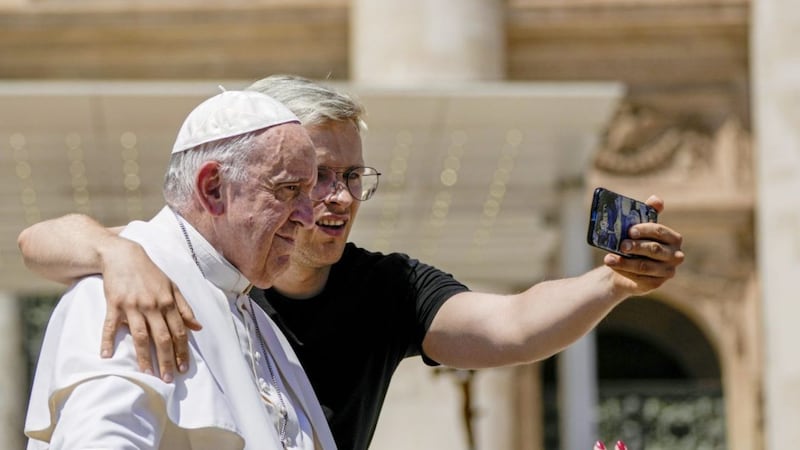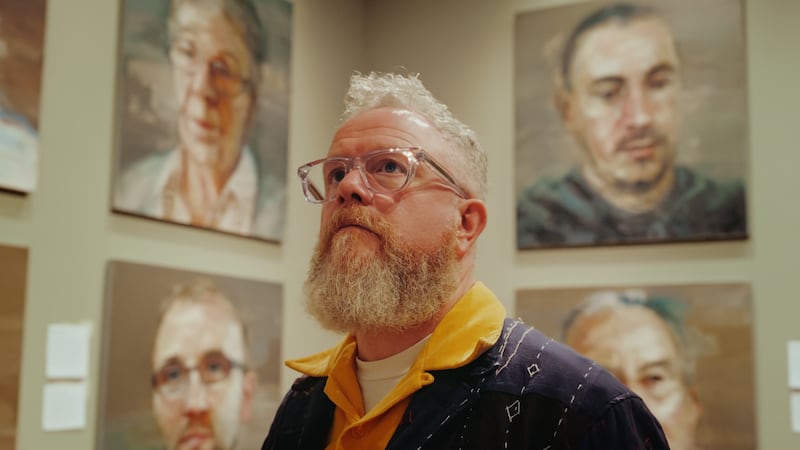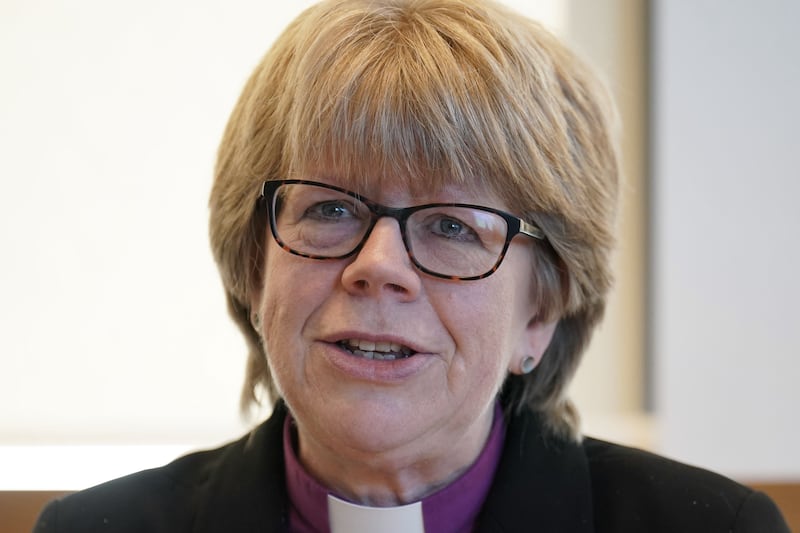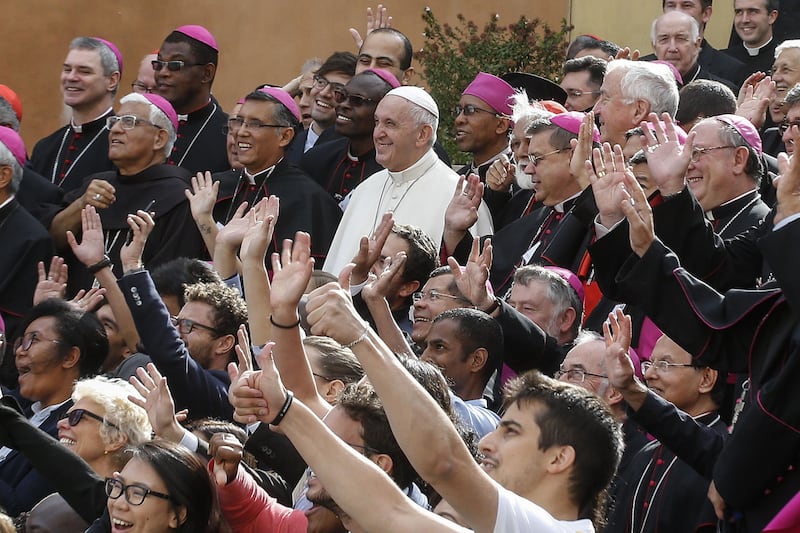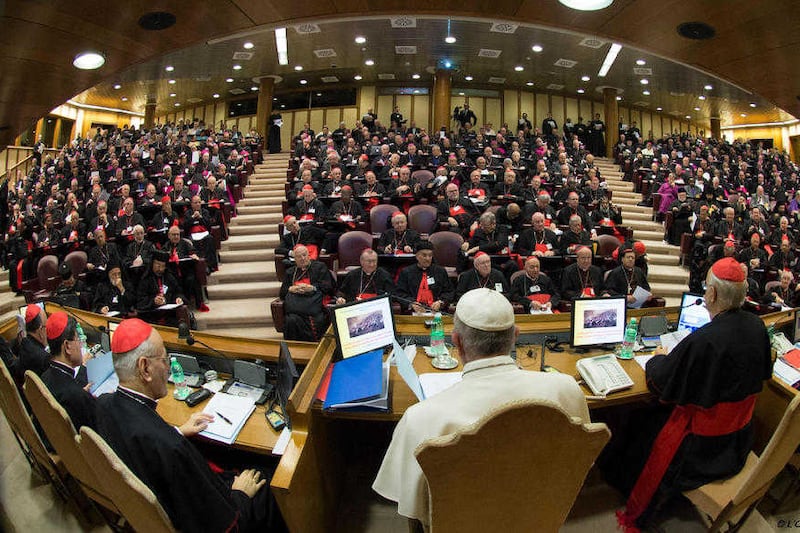WHAT if we could trust that God is present in the space between us? This question was posed by a participant at the recent Yearly Meeting of Quakers in Britain. I was privileged to be one of the ecumenical guests invited to take part as Quakers reflected on challenges of faith, community and belonging in contemporary society. I was struck by that question in particular and I have found myself coming back to it since then in my work on the synodal pathway for the Catholic Church in Ireland.
Pope Francis has called us to reflect on what it means to be a synodal Church - a community that journeys together, following the example of Christ in sharing faith and caring for one another. Across the world, dioceses, parishes and other groups and organisations have been engaged in a programme of listening and outreach as part of the Synod convened by the Pope with the theme 'For a Synodal Church - Communion, Participation, Mission', which runs from 2021-2023. What has been shared in these listening processes is currently being synthesised for submission to the Vatican Synod Office.
This large-scale, wide-ranging invitation to dialogue and discernment is unparalleled in the history of the Church. In the months since the process began synodality has gone from being an obscure and opaque term to one that is heard with increasing frequency in different areas of Church life, with positive connotations of hospitality, fellowship, listening and prayerful dialogue.
In Ireland every diocese has taken part in this process, along with religious congregations and lay organisations. Over 40 submissions from these local processes will now form the basis of a national synthesis.
A national pre-Synodal Assembly will take place this Saturday (June 18). Bishops will join with those who coordinated and facilitated local listening work for a day of dialogue and reflection to support the development of our national synthesis.
It will provide an opportunity for prayer and reflection on the journey so far, on how we are experiencing synodality in our Church and the learning that is emerging from what has been shared.
There is much to encourage us in what has taken place to date. Despite the very challenging context of the pandemic people participated in significant numbers in a wide range of activities.
The facilitators embraced this opportunity with great generosity and creativity, devoting considerable time and effort to finding the most effective ways to reach people. Participants at the events spoke of the importance of faith in their lives, their hopes for renewal of the church in Ireland, and their ambition to strengthen the mission of the Church in sharing the Good News of the Gospel and protecting the common good.
Unsurprisingly, people have also approached this process with deep concerns. It is difficult to find words to convey adequately the devastation that has been caused by the abuse that was perpetrated in a Church context - to people’s lives, to relationships and to trust in the Church. We owe a great debt to the courage of the victims and survivors, and we have more still to learn from them as we journey together in search of healing and reconciliation.
As part of the synodal process people have shared honestly and bravely about many different barriers to belonging in the Church and the hurts that come between them and their love for the Church, causing them to feel marginalised and excluded.
Some have expressed fears for the future, concerned at the absence of young people and the challenge of sharing the faith in a rapidly secularising society.
As is to be expected, participants have different and sometimes divergent priorities, and this has led to fears that the synodal process will result in fracturing and fragmentation.
Pope Francis reminds us that synodality is not about debate, but about a spiritual practice, where we seek not only to listen respectfully to each other, but to listen for the Holy Spirit.
As we encounter these differences on our journey together, what might it mean to trust that God is present in the space between us - in the midst of our fears and frustrations, our misunderstandings and missed opportunities for connection?
As we work to heal relationships within the Church, how might we build on that learning and experience in our engagement with the wider society in the work of social justice and inclusion, of peace and reconciliation?
The synodal process offers great hope and with that comes a great responsibility to ensure that the learning from the listening finds meaningful expression in pastoral action.
The Catholic Church in Ireland is committed to a national synodal pathway leading to some form of national synodal assembly for Ireland after the Universal Synod. There is a lot more work to do to bring more voices and perspectives into the conversation. We are deeply grateful to all who have participated so far, providing a strong foundation for that work.
Dr Nicola Brady is Chairperson of the Steering Committee of the Irish Synodal Pathway. For more see synod.ie.
